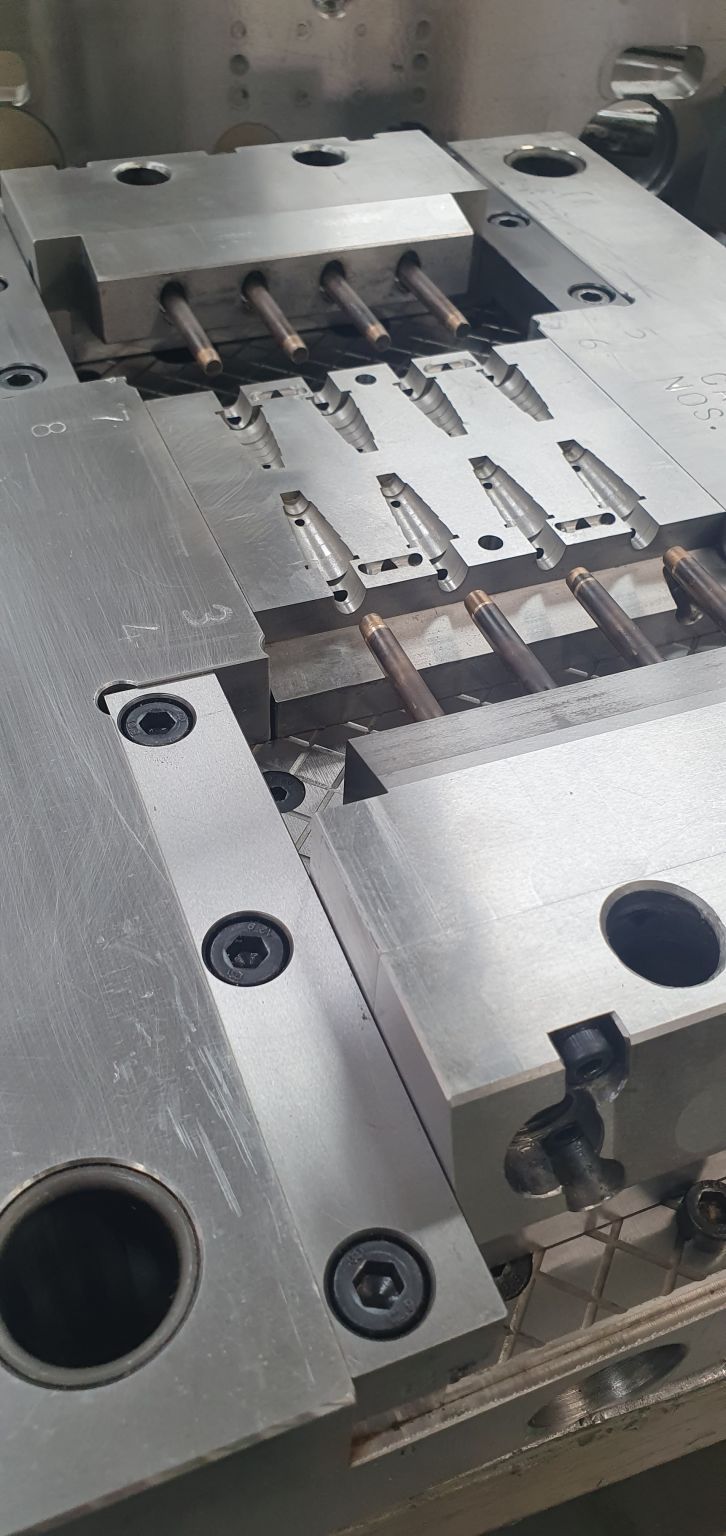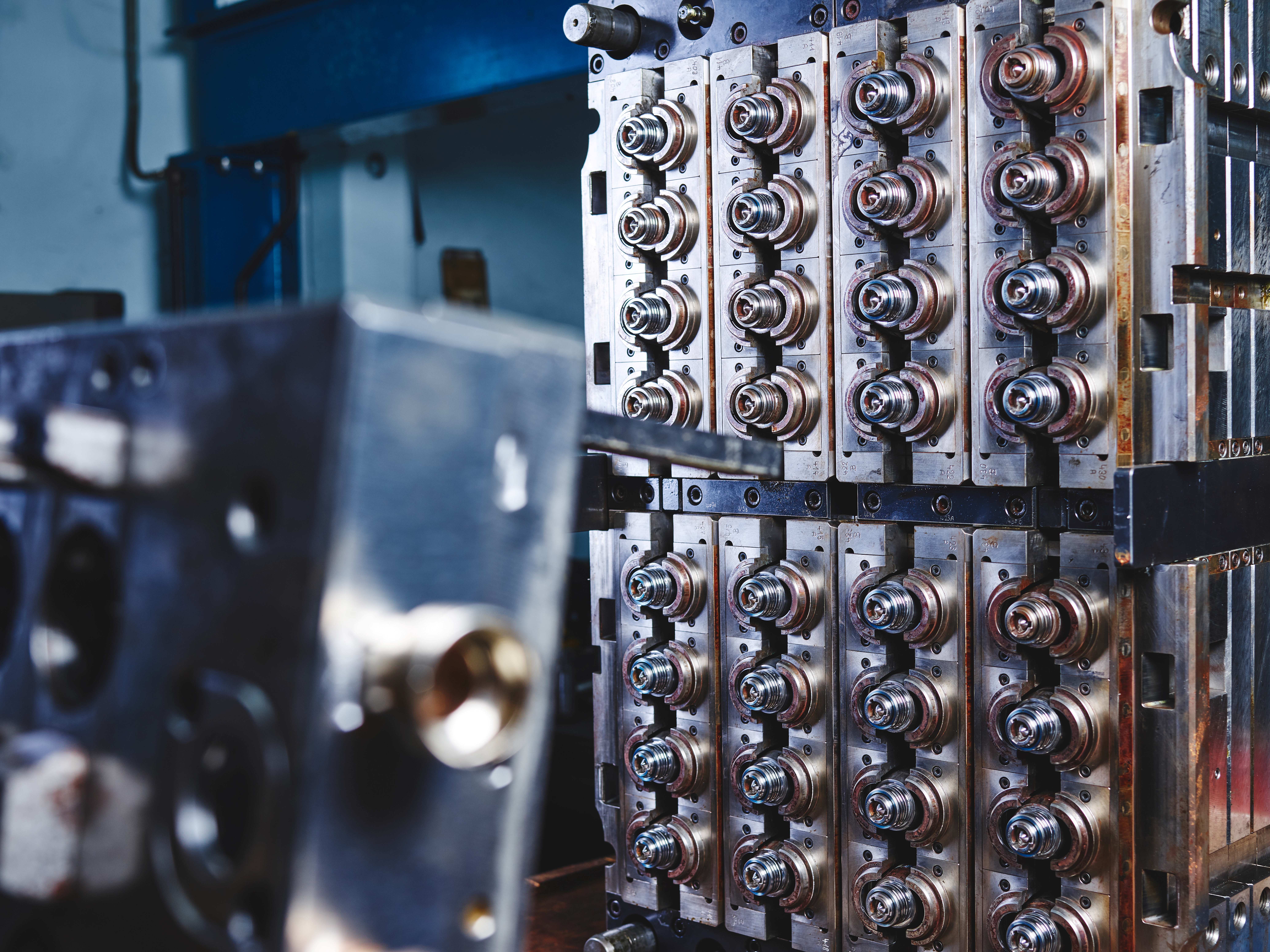Investment into mould tooling can be significant and with each project there are several variables that will impact on final mould tool costings. We often get asked for a ballpark estimation for the manufacture of a new product that is still in the early design phase of a project. Reading on you will start to understand this is not as straightforward a request as it may initially seem.
Here we offer a little insight into the contributing factors in determining and quoting for your bespoke tooling costs:
1. Impressions
Increased numbers of impressions will reduce piece price but increase size and complexity of the tool.
Higher impressions require more inserts with their complex detail and a larger bolster to house them in,both elements contribute to increasing tool costs.
2. Hot Feed Vs Cold Runner
A hot fed tool is the best option for sustainability.
It is preferable as it can reduce piece price by improving cycle time, reducing waste material, and eases processing for moulding.
It can increase the options for gating when designing the tool and reduces the need for sprue and runner related components.
It can simplify larger impression tooling as long cold runners, or three plate cold runners are not required.
However, hot fed tooling can be more expensive in its construction, requiring the hot nozzle feeds, potentially multi-drop systems with a manifold temperature control and additional plates to support the system.
Cold runners can be the best options for low impression tooling and where a gate scar is acceptable.
The tooling is cheaper to construct and can be faster to deliver.
The piece part cost will be higher as the cold feed that channels the material from the machine to the detail in the tool has to be accounted for in the component price.
3. Material Choice of Mould Tools
The choice of tool material depends on three main factors: -
§ Material of the moulded product.
§ Complexity of the tool.
§ Life expectancy of the tool.
Development tooling or ‘throw away’ tooling can be made from cheaper alloys such as Aluminium or P20 pre-toughened tool steel.
Basic tooling and moulding die sets can be made from an unalloyed tool steel with excellent machinability such as 1.1730.
For commodity moulding materials where medium to high volume is required a chromium hot-work tool steel such as 1.2344 that can be hardened is a viable choice.
Moulding advanced engineering plastics or those with abrasive fillers like glass requires the use of a much harder-wearing tool steel such as 1.2363 (A2) 1.2379 (D2), CPM 10V.
If you want to achieve lenses or other high gloss finishes on the part, this will require corrosion resistant tool steel like 1.2083 which can be highly polished post machining.
The better the grade of tool steel the more expensive the mould tool will be.
4. Complexity
The greater the complexity the more associated costs of manufacture such as labour hours, machine time, and bought in elements such as materials and bespoke services.
The simplest tool is often described as a “straight open and close”, this means to operate and release the component the tool only needs to open in one plane.
More complex component designs could require additional features, and movements in opposing planes.
Levels of complexity can also limit the viable number of impressions in the tool or make the method of manufacture more costly.
The complexity of the part design massively effects tool cost.
§ Multi-stage ejection
§ Side actions
§ Inclined ejectors
§ Up and aways
§ Over moulded inserts
§ Unscrewing
§ Collapsing cores
§ Actuated cores
§ Camming cores
§ In mould closing
§ Interchangeable inserts
§ Sacrificial inserts (in high wear or damage susceptible areas)
§ Fixed half ejection
§ Air blast
§ Air assisted ejection
§ Cavity pressure sensors
§ Valve gates
§ Conformal cooling
§ Handloaded inserts
As you may now understand there are many contributing elements to the cost of a mould tooling solution which is why it is imperative to obtain ‘like for like’ quotations from your chosen suppliers.
If you are looking to obtain a quotation for your next plastic injection moulding project and want to optimise your ROI contact our in-house Engineering Team on 01403 264397 or email websales@pentagonplastics.co.uk.
All tools are quoted and fully manufactured on-site here in the UK; you can even pop in and see the tool as it is constructed!





